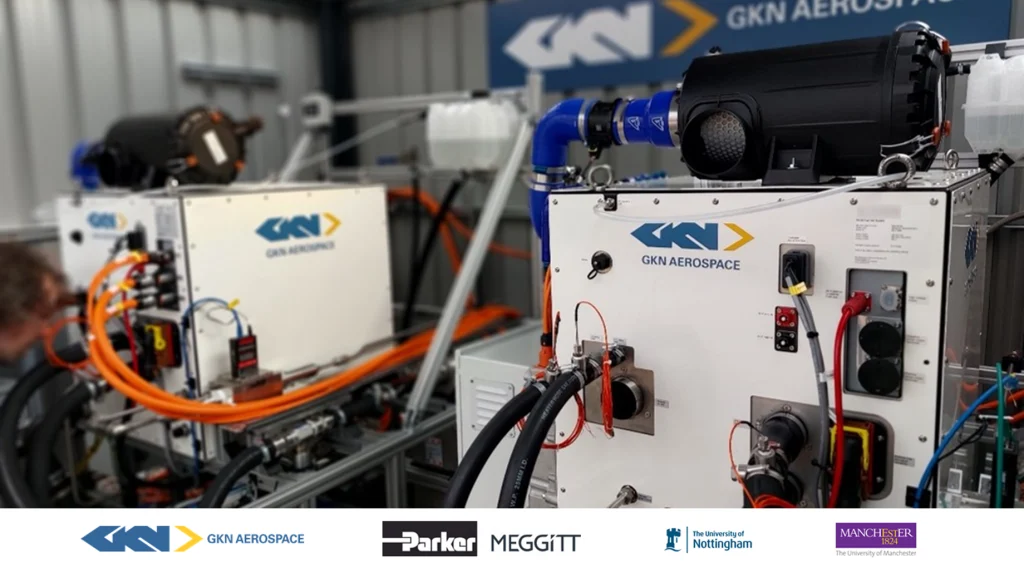
GKN Aerospace has launched H2FlyGHT, a groundbreaking £44 million project focused on developing a 2-megawatt (MW) cryogenic hydrogen-electric propulsion system for the next generation of sustainable aircraft.
Building upon the success of the H2GEAR project, H2FlyGHT introduces advanced thermal management solutions to enhance efficiency and performance.
The project aims to streamline the path to flight testing and certification by demonstrating an integrated propulsion system at the 2 MW scale, including fuel cell power generation, cryogenic power distribution, and advanced cryogenic drive systems.
GKN Aerospace is collaborating with key industry and academic partners, including Parker Meggitt, the University of Manchester, and the University of Nottingham, to achieve the project’s ambitious goals. Together, they will focus on developing critical components such as thermal management systems, hyperconducting motor coils, and cryogenic inverter technology.
Russ Dunn, CTO of GKN Aerospace, said: “The H2FlyGHT project marks a pivotal step in our quest to enable aviation’s route to netzero. Building on H2GEAR’s innovations, we are scaling up to 2 MW propulsion system demonstration to maximise the payload and range potential of zero emission flight. Collaborating with our partners, we aim to streamline the path to flight testing and certification, supporting the industry’s move to commercialise sustainable hydrogen platforms by the mid-2030s”
Tracy Rice, VP of technology & innovation for Parker Aerospace, said “H2Flyght is another key building block towards the Hydrogen Aircraft and carbon-free aviation. Together with our partners, leveraging our UK footprint and our great engineering capabilities, we are committed to develop the right technologies to enable net-zero emissions by 2050”
Gary Elliott, Chief Executive of the Aerospace Technology Institute said: “Hydrogen has a strong potential to power the next-generation of sustainable aircraft, and hydrogen fuel cells are a key part of the ATI’s Destination Zero strategy and zero-carbon emission roadmap.
We are pleased to co-fund and support the H2FlyGHT project, led by GKN Aerospace, which builds on other projects in the ATI Programme portfolio, such as HyFive and H2GEAR. H2FlyGHT will accelerate the fuel cell technology to flight readiness and take us an important step closer to realising the vision of hydrogen-powered flight.”
The H2FlyGHT project is supported by the Aerospace Technology Institute (ATI) and builds upon the successes of other ATI-funded projects, including HyFive and H2GEAR. This combined investment of approximately £200 million in hydrogen-electric propulsion demonstrates GKN Aerospace’s commitment to leading the industry’s transition to sustainable aviation.
Swanwick House, 22 Towcester Road, Old Stratford, Milton Keynes, MK19 6AQ, UK
© 2025 Project Management Global. All rights reserved | Privacy Policy